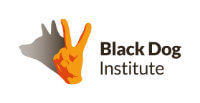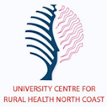First responders often face challenging, overwhelming or traumatic experiences in their work which can impact their mental health and wellbeing. It is estimated that as many as 20-30% of emergency service workers meet the criteria for PTSD1 so access to mental health and wellbeing support is vital.
Digital mental health offers a practical solution for frontline workers, providing a range of benefits including accessibility and anonymity. This is particularly advantageous for those with demanding schedules, where there is a perception of stigma around mental health issues, or for those who are based in remote locations. This ensures that support is readily available whenever and wherever it is needed.
While digital mental health resources have traditionally been associated with managing conditions like anxiety and depression, recent evidence suggests their efficacy extends to other disorders, including PTSD2. The effectiveness of these tools can be further enhanced with additional support from the individual’s own health clinicians or through digital programs that offer an e-therapist or clinician support3.
Black Dog Institute National Emergency Worker Support Service

Black Dog Institute have developed an online, free and confidential mental health assessment service for emergency service workers and volunteers. It provides support and information to help understand and manage symptoms of depression, anxiety and post-traumatic stress, and connect users with a range of suitable support options.
Many frontline workers, like fire fighters, police and paramedics, find it difficult to acknowledge mental health challenges and ask for help4. The Black Dog Institute National Emergency Worker Support Service provides a safe space to start seeking help. Friends or family members who may be worried about a loved one can use this service to help start a discussion or access expert tools and advice.
Online screening and referral services like The Online Clinic and Path2help can also help a person work out whether they might need further mental health support and guide individuals to suitable mental health and drug and alcohol support. These services should not be used as a substitute for a consultation with a health professional.
Self-help and in the moment support
We know clinicians can’t be available 24/7 for their clients and some people simply aren’t ready or able to access face-to-face care. For these patients, digital mental health services can be a great asset, available on the go, whenever and wherever they are needed. The services below help people learn about their mental health, teach practical skills and to self-manage symptoms, and can be accessed whenever they might need a refresher.
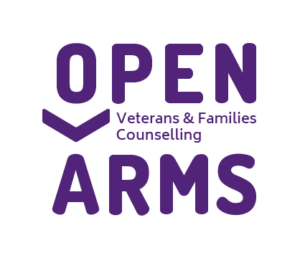
Open Arms
Self-help Tools
https://www.openarms.gov.au/get-support/self-help-tools/show-all-tools
While designed for Australian veterans and their families, the Open Arms website includes a range of self-help tools that can be used by anyone experiencing PTSD symptoms. This includes physical reaction tools to relax and gain control, tools addressing negative thinking, manage challenging emotions and helping to change behaviours.

Become
https://become.cracksintheice.org.au/
An online program from Cracks in the Ice for people who have experienced trauma and who use alcohol or other drugs. The program builds on users strengths to teach practical skills for health and wellbeing across four modules.

Peak Fortem
https://peakfortem.fortemaustralia.org.au/home
An online library of tools and information to promote Australian first responders mental fitness, increase performance and improve wellbeing. These tools are built on a solid foundation of Psychology and sports science, using evidence based models to support the wellbeing of first responders and their families.
Online treatment
Digital treatments are structured, interactive psychological interventions aimed at treating a specific mental health issue. They can be a great option to support your work with a client between sessions, guide treatment, or for clients who might be resistant to see face-to-face treatment. The services below provide online treatment specifically designed to address post-traumatic stress disorder.
Digital treatments might not be suitable for people who are suicidal, at risk of hurting others, and/or experiencing chaotic life circumstances. If you are unsure about the suitability of a digital mental health treatment and this lies outside the scope of your role, directing to a GP is a good place to start.

Mental Health Online
PTSD Online Program
https://www.mentalhealthonline.org.au/programs/ptsd-online
Mental Health Online is an internet-based treatment clinic for people with mental health difficulties. Their PTSD Online program, based on CBT, is designed to help users understand and manage symptoms of post-traumatic stress disorder and learn how to change the unhelpful thoughts and beliefs maintaining PTSD. Users have access to an e-therapist to guide them through the program.

MindSpot
The PTSD Course
https://www.mindspot.org.au/treatment/our-courses/ptsd-course/
MindSpot is a free national service providing online screening assessment and treatment courses for Australian adults. Their PTSD course aims to provide information, help people break unhelpful habits and learn core psychological skills over eight weeks. Users can choose to receive weekly therapist support during the course, or contact the MindSpot therapists when they need to.

This Way Up
Post-traumatic stress Program
https://thiswayup.org.au/programs/post-traumatic-stress-program/
This Way Up provides online treatment, education and research in the realm of mental health. Their self-guided online CBT program for Post-Traumatic Stress teachers practical strategies for managing recurrent flashbacks, nightmares, and anxiety following a traumatic event over 8 lessons.
Peer Support
Peer support can also be a great way to support your patients, providing a safe space to share their experience, and connect with people with similar experiences.

Lifeline
13 11 14
A crisis support and suicide prevention phone and online chat service. Callers can speak to a trained crisis supporter over the phone, any time of the day or night.
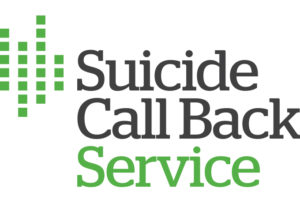
Suicide Call Back Service
1300 659 467
https://www.suicidecallbackservice.org.au/
A free nationwide service providing phone and online counselling to people at risk of or affected by suicide.
Resources for Families and Friends
Family, friends and support people play a vital role in supporting the mental health and wellbeing of frontline workers, but it can be a very challenging job. It is important to take care of caregivers’ mental wellbeing as well, empowering them to continue supporting their loved ones, and digital mental health services can be great resources to help.

MindsTogether
Family and friends supporting the mental health of paramedics.
https://mindstogether.org.au/our-programs/paramedic-mental-health/
Minds Together is a digital program developed by EveryMind, a leading mental ill-health and suicide prevention Institute. The program aims to support the friends and family supporting the mental health of paramedics, reducing the impacts on family and friends.
Services on the horizon
There is a lot of working being done in this space with new services in development or undergoing trials. Here are just a few services we are keeping an eye on:
Protecting Emergency Responders with Evidence-Based Interventions (PEREI)
https://www.flinders.edu.au/engage/community/clinics/posttraumatic-stress-clinic/perei
PEREI aims to improve wellbeing and resilience among emergency workers by assisting them to build skills, boost support and look after themselves in their early careers and potentially reduce the negative effects of stressors. This service is being developed by Flinders University and is currently undergoing a randomised controlled trail.
Learn more
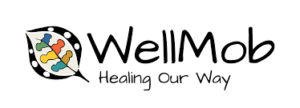
WellMob
Access an online library connecting frontline health workers to culturally relevant social and emotional wellbeing resources for Aboriginal and Torres Strait Islander people.
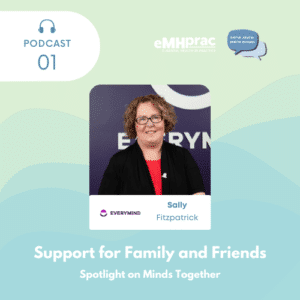
Digital Mental Health Musings Podcast
S3E1 | Support for Family and Friends: Spotlight on Minds Together
Check out our podcast episode we speak to Dr Sally Fitzpatrick, a Program Manager at EveryMind, about the Minds Together program.
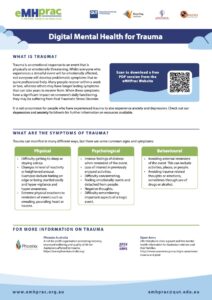
Digital Mental Health for Trauma
Download our factsheet to find more digital mental health resources for trauma.
References
1 Regehr, C., LeBlanc, V. R. (2017). PTSD, Acute Stress, Performance and Decision-Making in Emergency Service Workers. The Journal of the American Academy of Psychiatry and the Law, 45 (2), 184-192. https://www.researchgate.net/publication/318093412
2 Philippe, T. J., Sikder, N., Jackson, A., Koblanski, M. E., Liow, E., Pilarinos, A., Vasarhelyi, K. (2022). Digital Health Interventions for Delivery of Mental Health Care: Systematic and Comprehensive Meta-Review. JMIR Ment Health 2022, 9(5): e35159. Doi: 10.2196/35159. PMID: 35551058. PMCID: 9109782
3 Andersson, G., Titov, N., Dear, B. F., Rozental, A., Carlbring, P. (2019). Internet-delivered psychological treatments: from innovation to implementation. World Psychiatry 18 (1): 20-28. Doi: 10.1002/wps.20610. PMID:30600624; PMCID: PMC6313242.
4 Auth, N., M., Booker, M. J., Wild, J., Riley, R. (2022). Mental health and help seeking among trauma-exposed emergency service staff: a qualitative evidence synthesis. BMJ Open, 12, e047814. Doi: 10.1136/bmjopen-2020-047814



